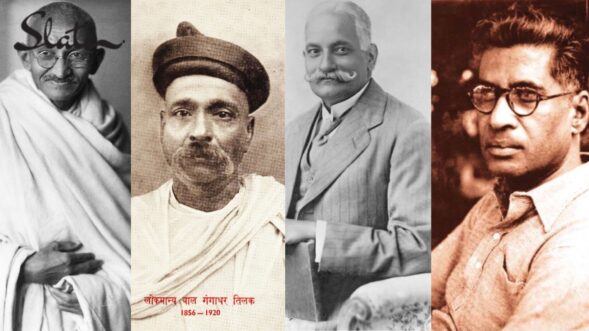
By Rev. Mc Donald Pyngrope
Year after year, Christians around the world eagerly await the ‘birth’ of Jesus Christ on Christmas Eve. Simultaneously, the world embraces colonial and western traditions of celebrations flurrying every street and home, including churches (where most do not grasp the cultural bomb, tradition’s historicity and the colonial impact of such rudiments).
A joyous spectacle of children singing melodious carols with Santa Claus and a nostalgic aura for adults. Polychromatic lights, Christmas trees, senseless shopping, mouth-watering cookery and a tinge of romance among the youth are among the accepted but misplaced norms of celebrations, which have been commercialised, glamourised and romanticised.
Be it as it may, in a small Judean town lying in crossroads between Asia, Europe and Africa, history sheds a different and a dark account of the days before His birth but with a profound significance of hope. Thus, the Christmas event occupies a multifaceted meaning for subsistence and sustenance of life, rather than greed and a luxurious life.
It was Isaiah who prophesied the birth of the ‘Prince of Peace’, who would establish justice and righteousness on earth, which would mark the beginning of a new era of religious and social transformation personified by His life and ministry in a politically charged period in history, characterised in the upheavals of the time.
His reign does not include elections, ministers, government departments, defence forces or any form of constitution but emphasises the definitive principles for which the latter were designed for, i.e., peace, justice and righteousness.
In numerous governments, the fundamental plunge into winning elections, forming policies, development, and the expansion of business empires entail endless political manipulation for power, coercion, money and control. But the Christmas’ political message is that any form of democratic governance should seriously struggle (and work) towards prioritising peace, justice and righteousness.
The history of world empires strongly attests that peace is attained when justice prevails. Justice prevails when righteousness is a pursuing energy of kings and statesmen. All these values are progressively bounded by the politics and ethics of love and truth that is clearly evident in his ministry. Hence, the prophesy firmly reflects a political motif (the Bible has abundant lesson on political values) of political consciousness for electorates, elected representatives and governments.
In brief, Christmas accounts the ordeal of Mary and Joseph who had to flee Galilee because Mary was expecting a child before her marriage to Joseph. Given the social and religious discrimination prevailing during those times, this invited stigma and a serious religious offence that, possibly, carried with it a severe punishment. Considering the same, they lived for months in fear of shame and stigmatisation while traveling from one town to another with uncertainty but yet again in hope! It is rather difficult to imaginatively picture their struggles, fear, sleepless nights, anxiety, doubts, expectations, disappointments, but, accordingly, Joseph’s dedication toward her and God’s purpose culminated in the virgin birth of Jesus.
Presently, in an ever-evolving society, certain family values, bonds, traditions are fast eroding into high divorce rates, single parenthood, orphaned children and broken families. Perhaps, these are some of the many factors, leading to mental health problems, social degradation, and identity crisis faced by several families in our community.
Family is the fundamental unit of the society. This simple yet relatively complex relational unit necessitates responsibility, dedication, sincerity, faithfulness and love from its members. There may not be a simple probable solution to a complicated, interrelated network of social and mental health issues but Christmas reiterates the importance of strong family ties grounded in love, commitment and responsibility. It is also an honest effort of reconciliation and restoring family ties and kinship.
One cannot be blind to the social, religious and economic context of the time, which exposes the grave disregard for human life and dignity.
Social discrimination was prevalent, in the form of religious indifference toward the commoners and various exorbitant taxes levied upon the people by the monarchy and the temple priests.
The monarchy spent the collected taxes for its own luxury rather than the well-being of the common people while the priests, conniving with few Romans administrators, spent it for Rome. An example of this nexus can be referred to the temple incident when Jesus overturned the tables of the money lenders – most were relatives of the temple priests. They charged an inflated price on sacrificial items sold in the temple itself.
Since the poor could not afford these items meant for the religious ritual of forgiveness of sins, it led them to believe that their sins were not forgiven while the rich and the wealthy safely assumed they were without blemish.
Concurrently, there existed a Pax Romana, which literally means, “Roman Peace”, referring to the time period from 27 BCE to 180 CE in the Roman Empire.
This 200-year period saw unprecedented peace and economic prosperity throughout the empire, which spanned from England in the north to Morocco in the south and Iraq in the East. However, it favoured the wealthy, rulers and temple priests of the Judean province, who exploited their very own people. As a result, the shepherds belonging to the lower strata of the society, suffering immense discrimination and hopelessness, found overwhelming joy at the news of the birth of the King. Their long-awaited hope had come in flesh and blood.
Hope is a powerful message of Christmas for the oppressed, the orphaned (orphanage is an alien idea to indigenous community), single parents, broken families, those deprived of justice, the bereaved families of Mukroh, and for an equitable social and economic actuality.
One day, perhaps, it is hoped that we shed away the unfitting individualistic, celebrations for a more community leaning, indigenous and soul-searching way of life, progressing toward familial restoration, social, economic, and political transformation.






